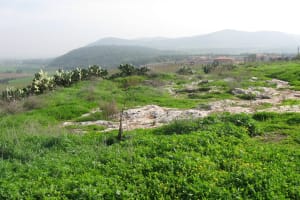A Spartan economy? Netanyahu’s sobering warning reflects Israel’s growing isolation

Prime Minister Benjamin Netanyahu's statement on Monday that Israel will have to "adapt to an economy that in certain areas, has autarkic (self-sufficient) characteristics" in the shadow of increasing political isolation shocked some economists and even caused a decline in the Tel Aviv Stock Exchange (TASE).
Prime Minister Netanyahu later clarified that he was not referring to a totally isolated economy, but only recognizing that “the world is dividing into blocs, and we are in none of them.”
Netanyahu also said that Israel has “a scientific and technological edge that creates dependency and interest in cooperating with us.”
The prime minister also clarified that some of the “isolation attempts” are coming from Arab and Muslim states following the strike on Qatar.
Netanyahu’s political opponents derided his statements, with one MK posting to social media, “North Korea, we are on our way to you. Thank you Bibi!” Opposition head Yair Lapid said that isolation “is the product of a wrong and failed policy by Netanyahu and his government.”
“They are turning Israel into a third-world country and are not even trying to change the situation,” Lapid accused.
Even notable economists appeared to misinterpret Netanyahu’s statements. Ron Tomer, President of the Manufacturers' Association, said that "the Prime Minister has made public what we feel and warn about.”
While stating that “Israeli industry will always ensure that nothing is lacking – not in security, not in food, nor in any manufacturing sector that is essential to the Israeli economy,” Tomer also said, “an autarkic economy would be a disaster for the Israeli economy and would affect the quality of life of every citizen. Exports are Israel's main growth engine, and giving up on them is giving up on our future in Israel.”
The Hi-Tech Forum for Israel, which includes dozens of CEOs from the high-tech sector, said in a statement, “High-tech, the main growth engine of the economy, depends on access to international markets, advanced technologies and the trust of foreign investors. Any damage to these ties undermines national resilience and endangers our technological and military advantage.”
Economists, such as Prof. Manuel Trachtenberg, also reacted negatively to the statements, warning that isolation would lead to economic collapse.
"Such a statement in the 21st century is equivalent to saying that we will return to the Stone Age,” Prof. Trachtenberg told Israeli economics news site Globes.
"The Israeli economy is very simple. We sell the world intelligence and buy everything else. Austerity means that you sell one Jewish intellect to another and produce everything else.”
Trachtenberg said that in his opinion, “There is no way that the Israeli economy in its current form can exist in a direction of reducing economic ties with the world. That is the essence of the Israeli economy. It means a dramatic decline not only in the standard of living, but in our ability to maintain an army, security and, of course, all social services.”
However, Trachtenberg’s negative outlook is not shared by all Israeli economists. Amir Eyal, owner of the Infinity-Eyal Investment group, told Globes, “We already know how to be a self-sufficient economy today.”
Eyal also said that Israel being a self-sufficient economy is not the same as being an isolated economy.
“The Israeli economy exports goods that others will never stop wanting - water, energy, weapons, technologies, and food technologies,” Eyal explained. He also said that Israel has already achieved water and energy independence, saying that “In food, we both produce and import.”
He also downplayed the economic risk of Western nations dropping purchases of Israeli defense products, noting that other countries were quick to take their place.
“Western Europe will no longer be the same, while Eastern Europe, which prevented Islamist immigration, is getting closer to us,” Eyal noted. “In weapons, if the Spanish, for example, do not want our products - let them be satisfied with inferior products.”
"Israel will always have supporters and alliances, because it represents Western civilization in the region,” Eyal continued. “There will always be demand for Israeli weapons, Israeli gas, high-tech, and agro-tech. Do not eulogize the industries that Israel has developed.”
Prime Minister Netanyahu later clarified his remarks about "political isolation" in a conference at the Foreign Ministry, saying, "Have they achieved global isolation? Not! The U.S. is with us, and so are many others. We have a focused problem of munitions from Western European countries, and we are working to lift this blockade, as we succeeded with the military blockade.”
The situation facing Israel is not new. During the 1967 Six-Day War and the 1973 Yom Kippur War, Israel also faced weapons embargoes from several Western nations.
In fact, the development of Israel’s Merkava tank came about as a result of a decision by the United Kingdom not to sell the British Chieftain tank to Israel, despite the Jewish State’s participation in the tank’s design, over fears of angering Arab nations also purchasing the armored units.
Following that decision, the Ministry of Defense approved a plan by Israel Tal to design a tank based around Israel’s unique needs and battle philosophy. The Merkava is now considered one of the best tanks in the world.
Netanyahu's sober words come at a time when threats of economic sanctions against Israel, especially from certain European nations, are becoming more severe in light of the renewed campaign to conquer Gaza City.
Netanyahu explained that Israel will need to reduce its reliance on “weak Western European leaders who surrender to extreme Muslim minorities in their countries.”
The prime minister said that this internal pressure “bends their policy and it creates all kinds of sanctions and restrictions on Israel.”
“This is a process that has matured over the past 30 years - even more so in the last decade – and it is changing Israel's international situation,” Netanyahu explained, noting that the pressure is seen “in the ability to import weapon parts, or weapon systems or ammunition.”
During the administration of U.S. President Joe Biden, Israel also experienced weapons embargoes and delays based on the disapproval among Biden’s cabinet of Israeli policies related to the Gaza War.
Under previous Defense Minister Yoav Gallant, Israel already began to take steps to increase its own production of certain munitions; however, Netanyahu’s remarks indicate that the nation will need to take drastic steps to ensure it has the weapons it needs for future conflicts.
“We could find ourselves in a situation where our weapons industries will be blocked,” he stated.
“We will need not only research and development, not only excellent technology, but the ability to produce in quantities everything we need. We are Athens and Sparta. But we are going to be Athens and Super-Sparta. We have no choice, at least in the coming years, when we will be forced to face these isolation attempts.”
Netanyahu, who has a history of support for free-market policies and one of the longest and most successful political careers of any politician in Israel, brings decades of experience to the situation.
Since the start of the war, he has threaded a careful, circumspect policy regarding what information he shares with the public, in order not to give Israel’s enemies an advantage. This sober assessment of Israel’s position, while certainly alarming, is likely not meant to alarm, as is clear from Netanyahu’s demeanor when speaking about the issue.
Great leaders in Israel’s past have faced similar situations, and they also called the Israeli public to action, explaining the situation Israel faced accurately, but with determination.
Israel certainly finds itself in a much stronger economic position in 2025 than it did when facing embargoes in the 1950s, ’60s, and ‘70s. It is probably best to interpret Netanyahu’s statements as a clear-minded call to action, similar to statements made by former Prime Minister Naftali Bennett in 2024, when he also compared Israel to Sparta.
“Israel needs now to live as a Silicon Valley in Sparta,” Bennett wrote to 𝕏 in April 2024.
Bennett said that after Oct. 7, Israelis “realized that our neighbors aren’t Belgium, Canada or Vermont.”
“We were cruelly reminded that Israel’s existence depends on our being constantly alert, vigilant, strong and very, very tough,” he continued, before stating that Israel must face challenge with innovation.
“At the same time, we must continue to be the StartUp Nation: innovative, technology savvy, agile, and connected to the latest and best stuff going on.”
Israel needs now to live as a Silicon Valley in Sparta.
— Naftali Bennett נפתלי בנט (@naftalibennett) April 9, 2024
Part of Israel’s colossal failure of October 7th was a result of complacency.
Your typical Israeli was enjoying life, thinking about work, the next startup and the upcoming vacation.
Wars? Nah..that’s passé.
We got…
“It’s a challenge no other nation faces,” he said. “To be a Silicon Valley in Sparta.”
The reality of the ongoing Iron Swords War against Hamas and the operations against Hezbollah, Iran, and the Houthis has given Israel a global proving ground for many of its weapons systems, with the result that sales for Israeli-designed systems have increased during the war.
Despite actions by countries like Spain and Britain, other Western countries, such as Germany and Finland, have embraced Israeli defense systems.
As the Israeli systems have proven themselves superior to competing products from the traditional enemies of Western nations, Russia and China, demand for those systems is not likely to decrease anytime soon.
The issue of changing political alliances might lead to temporary setbacks and require shifts in supply chain procurement, but the continued scale of global unrest and potential conflict arenas means that demand for Israeli technological expertise, honed by decades of facing existential threats, will only increase in the years to come.
However, the increasing hostility towards Israel will also necessitate a more discriminating approach to approving weapons sales, to prevent Israeli technology falling into the hands of antagonistic states.

J. Micah Hancock is a current Master’s student at the Hebrew University, pursuing a degree in Jewish History. Previously, he studied Biblical studies and journalism in his B.A. in the United States. He joined All Israel News as a reporter in 2022, and currently lives near Jerusalem with his wife and children.
You might also like to read this:

















